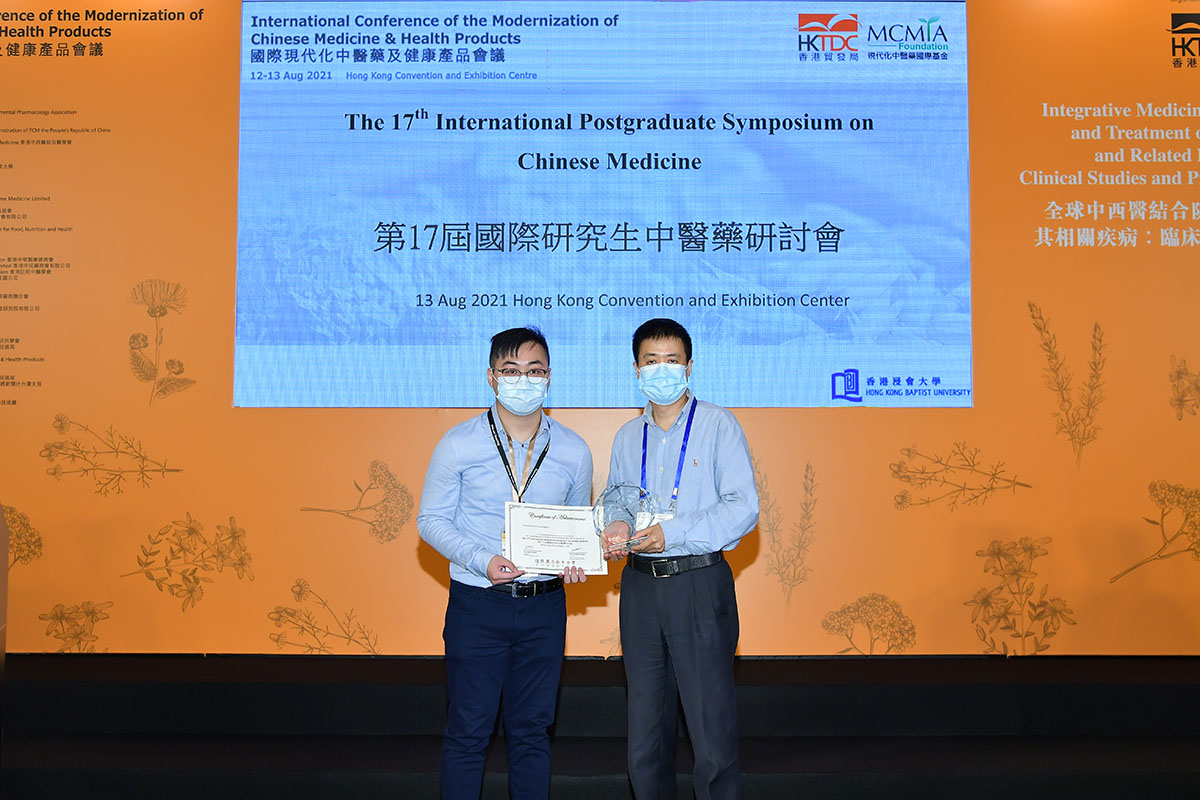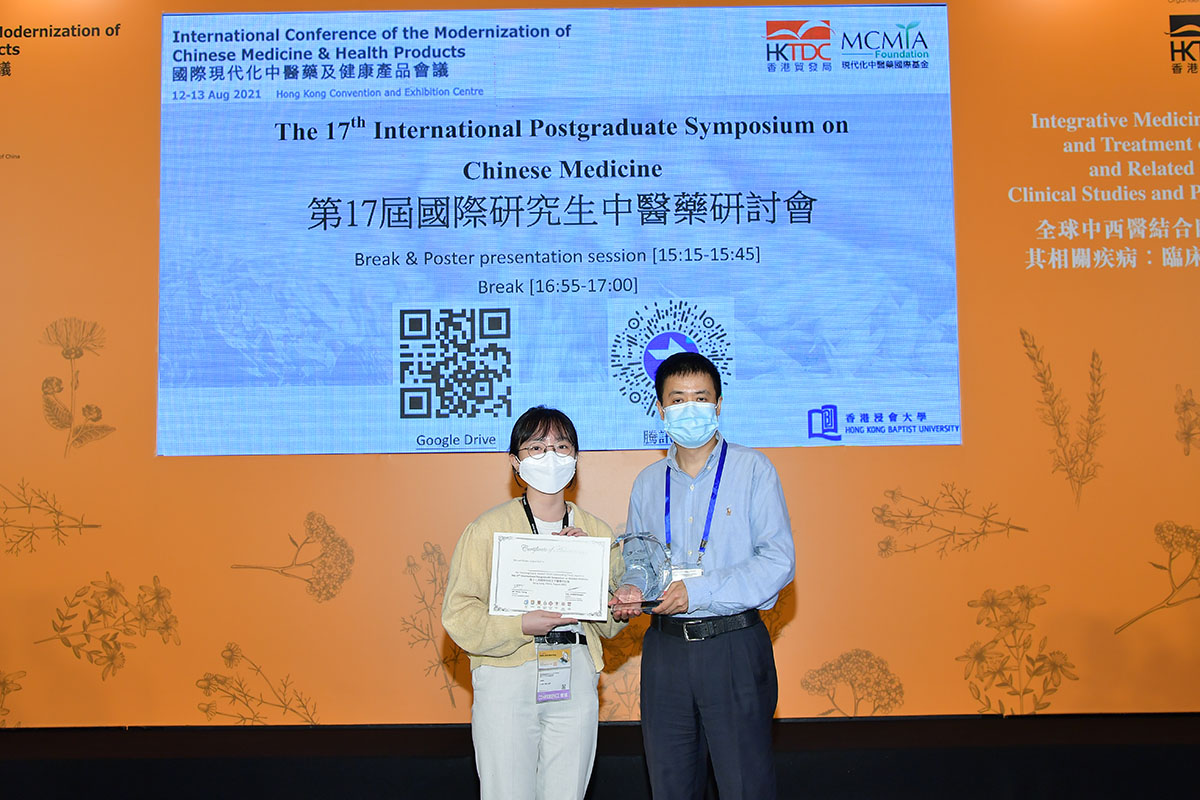News
Three doctoral students from SCM recognised for outstanding theses at international symposium
13 August 2021
PhD students Henry Lam, Wang Xiaoqi and Amy Li received the Tianjiang Cup Li Shizhen Youth Outstanding Thesis Award at The 17th International Postgraduate Symposium on Chinese Medicine 2021 (IPSCM 2021) held at the Hong Kong Convention and Exhibition Centre on 13 August. Organised annually by universities in Hong Kong, Macau and Singapore with the support of Modernized Chinese Medicine International Association, IPSCM provides postgraduate students with an opportunity to share their research advances with other budding researchers in the field of Chinese medicine around the world and also fuels their enthusiasm for Chinese medicine research studies.
Henry has been engaged in research on anti-fibrotic natural products under the supervision of Professor Zhang Hongjie, Director of the Teaching and Research Division (CMTR). In the conference, he presented his research work with the topic “Development of the pancreatic fibrosis inhibitor Dihydro-resveratrol in the treatment of type 3c diabetes”. His work has provided evidence that dihydro-resveratrol can inhibit pancreatic fibrosis in both pancreatic stellate cells and chronic pancreatitis mouse models, and may serve as potential therapeutic drug against chronic pancreatitis and type 3c diabetes.


Xiaoqi studied the overcoming of vemurafenib resistance in melanoma under the supervision of Professor Yu Zhiling from CMTR. She delivered at the event an oral presentation titled “Parthenolide overcomes vemurafenib resistance in melanoma via hsp90 inhibition and ferroptosis induction”. This project has proved that parthenolide can overcome vemurafenib resistance in both melanoma cells and mouse models, and parthenolide is a potential Hsp90 inhibitor and ferroptosis inducer.


Also under the supervision of Professor Yu, Amy has been researching into the combination of natural products and anti-melanoma chemotherapeutic. In her poster presentation at the event, she shared her work titled “Si-Jun-Zi-Tang in combination with temozolomide exerts anti-melanoma effects via regulating the miR-34b/Met/β-catenin pathway”. This study demonstrates that Si-Jun-Zi-Tang can enhance the anti-melanoma effects of temozolomide in both melanoma cell models and animal models, and regulation of miR-34b/Met/β-catenin pathway is involved in the effects. It also found that that Si-Jun-Zi-Tang attenuated liver toxicity of temozolomide in animal models.

